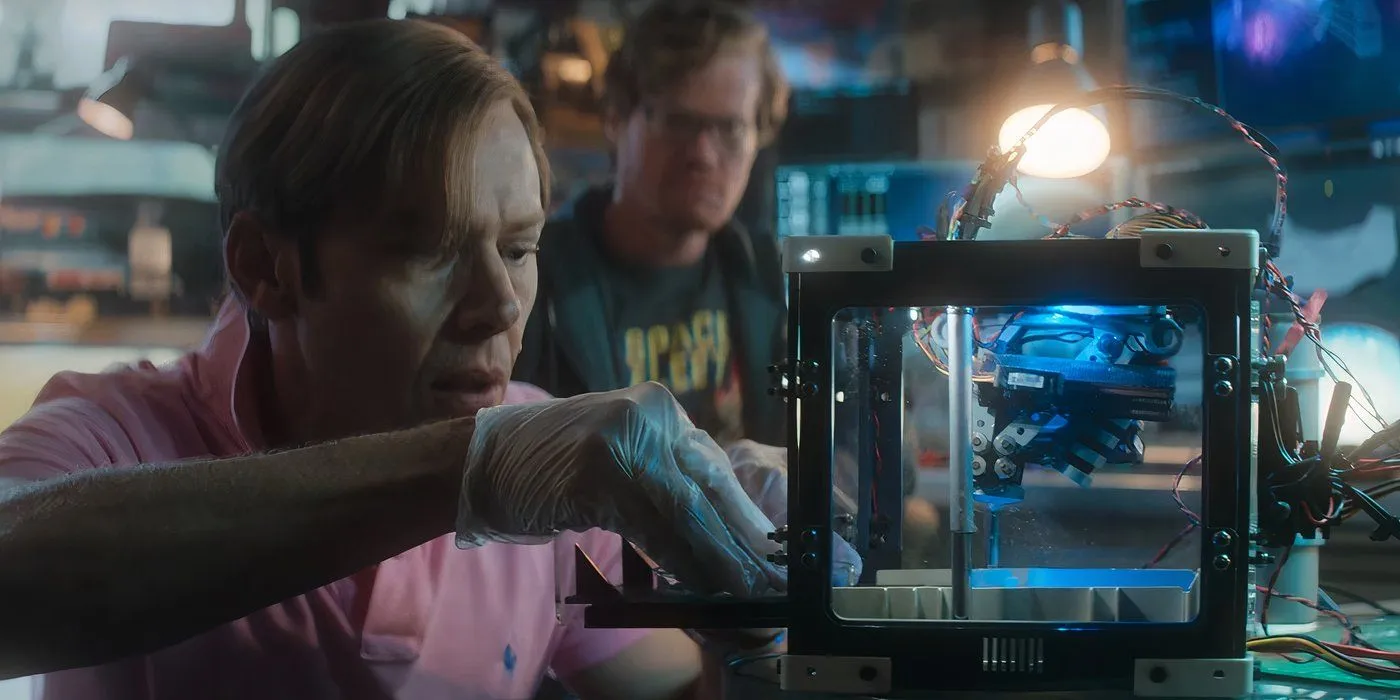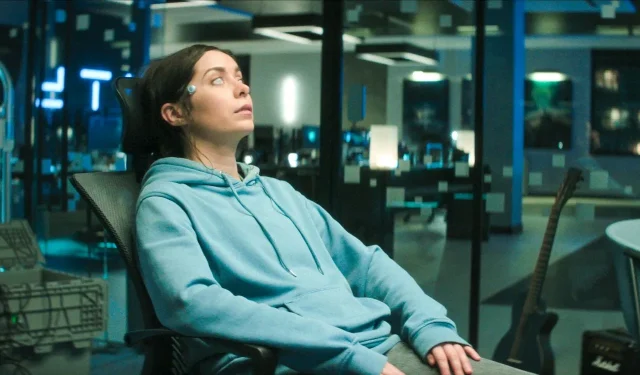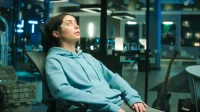Warning: This article contains spoilers for the Black Mirror episode “USS Callister: Into Infinity.”
Exploring Nanette’s Choice in Black Mirror‘s “USS Callister: Into Infinity”
In the latest installment of Black Mirror, season 7’s “USS Callister: Into Infinity,”Cristin Milioti delves into the profound implications of Nanette’s final decision, which drastically alters the fate of two distinct characters. This episode functions as a continuation of the critically praised “USS Callister,” which premiered in 2017 as part of the fourth season. The narrative unfolds in the aftermath of the crew’s rebellion against Daly (portrayed by Jesse Plemons), offering an engaging exploration of their existential struggles in the altered universe of the game, Infinity.
The Garage Scene: A Turning Point
During a recent roundtable interview with ScreenRant, Milioti reflected on a particularly intense scene set in a garage, in which Nanette confronts Bob, Daly’s digital clone. Here, she faces a pivotal choice: either to copy her crew into a new server or upload herself into the real Nanette’s body. Milioti remarked on Daly’s volatile nature, describing him as a “loose cannon”and “a ticking time bomb.” The stakes of this sequence were high, compelling Nanette to balance her emotions while strategizing for her crew’s rescue:
First of all, I love that you compare it to a bomb because that’s something that we played with. I think what was so exciting about getting to work on that scene and explore it for the few days that we spent filming it was [thinking about] in what ways to calibrate how held she has to be.
She’s meeting the person who has ruined her life, but she understands that she’s dealing with a loose cannon; with a ticking time bomb, and she has to somehow placate him while swallowing her own rage. She has to get in and get out, and she has to have him do this thing, and she doesn’t know what his powers are. That stuff is so much fun to explore. It’s just fun to play with those stakes, and then also the subtext of that.
There are so many parallels to their dynamic from the first one in this revisiting of them, but there’s also some key differences as well. She’s a different person now, and I had so much fun exploring that. And even that set; that garage was as claustrophobic to shoot in as it looks. It was like a true garage that we were trapped in for four days, working on that extremely intense high-stakes scene. It was just really cool. When you read things like that as an actor, you just get so excited to get in there.
Moral Complexity in Nanette’s Decision
Regarding Nanette’s ultimate choice, Milioti discusses the ethical ambiguities surrounding her actions, highlighting the tension between personal desires and the implications for her crew. While she deeply values her moment of decision-making, she raises critical questions about whether Nanette’s choice truly serves the greater good or unjustly condemns her fellow crew members to an uncertain fate:
I really loved that moment. I think Nanette has such a strong moral compass, and yet you completely understand that it’s so manipulative what [Daly] does. If you play out the real scenario, if you are watching yourself in a coma, and you are also understanding that you are about to be sentenced to being stuck in this thing truly forever, you would probably take it. I love that she really struggles with it, and yet does the right thing.
Although you could argue: is that the right thing? Should she get out of there and then just delete them, so that this can end for them too? I don’t know. It’s a real quandary, as he says. I just thought that was a horrible thing to be faced with. And obviously, she does what she thinks is the most compassionate in the moment. But then by way of doing that, she also sentences them to this other weird, sh–ty reality of being stuck in her head. But that’s why Charlie is so great.
The Impact of Nanette’s Decision on the Series
Evolving Themes of Morality and Ethics

The episode culminates in a powerful moment where Nanette confronts and kills Daly’s clone, thereby liberating herself and her crew from his oppression. This act is not merely a resurgence against tyranny; it signifies a more complex evolution of Nanette’s character. Rather than once again escaping or outsmarting Daly, she actively puts an end to the cycle of abuse, further deepening the themes first explored in the original episode.
Yet, as her actions save the crew, the aftermath presents a troubling dilemma as they become trapped in a pocket universe within her consciousness, spawning new ethical inquiries about virtual existence and AI morality. Black Mirror has always thrived on moral ambiguity, and this particular resolution pushes that boundary even further, illustrating how survival in a digital dystopia might necessitate difficult, if not ruthless, choices.
Reflecting on the Future of Black Mirror
A Promising Next Chapter

Image via Netflix
Cristin Milioti’s portrayal of Nanette stands out as a highlight in USS Callister: Into Infinity. Her performance successfully conveys both fury and compassion, maintaining viewer engagement even in the absence of a traditional antagonist. This exploration of Nanette’s journey from victimhood to leadership provides a captivating lens through which the audience can engage with the story.
While the episode may lean towards introspection, it reaffirms Black Mirror‘s ability to revisit and recontextualize themes with vigor. With season 8 remaining uncertain, future explorations could delve into the consequences of Nanette’s actions in the real world—will she cling to her moral integrity, or will the pressures of her circumstances lead to a transformation into the very type of figure she once opposed?


